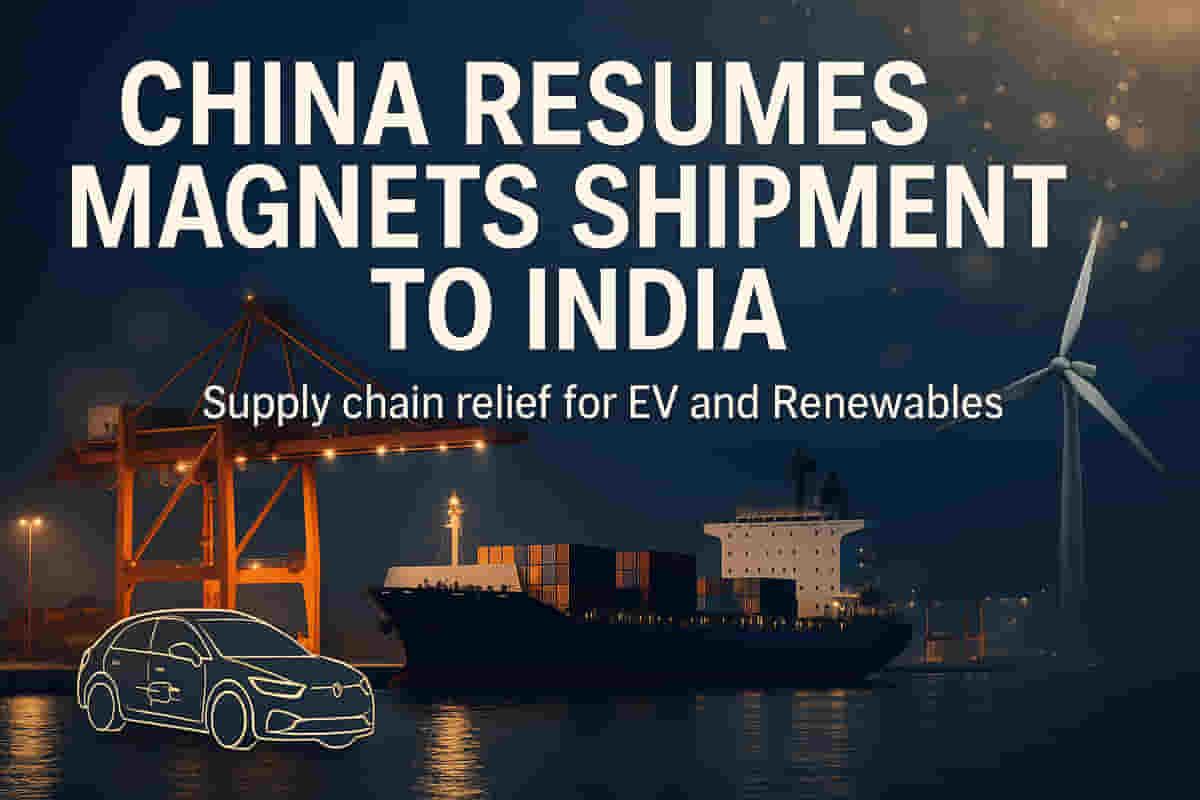China Resumes Heavy Rare Earth Magnet Shipments to India After Six-Month Halt
Industrial Goods/Services
|
31st October 2025, 9:25 AM

▶
Stocks Mentioned :
Short Description :
Detailed Coverage :
After six months of uncertainty caused by trade tensions between China and the United States, China has resumed shipments of heavy rare earth magnets to India. This development is a significant relief for Indian manufacturers in critical sectors like electric vehicles (EVs), renewable energy, and consumer electronics.
Four specific Indian companies – Hitachi, Continental, Jay-Ushin, and DE Diamonds – have been granted permission to import these magnets after providing end-user certificates (EUCs). These certificates assure China that the materials will not be used for manufacturing weapons and will cater only to domestic demand. A key condition attached to these shipments is that the cargo cannot be re-exported to the United States or used for military applications.
Rare earth magnets are indispensable for the production of EV motors, equipment used in renewable energy generation (such as wind turbines), and aerospace and defense systems. India's burgeoning EV industry is a major consumer of these components. China's dominance in global production, accounting for approximately 90%, gives it considerable influence over the supply chain.
Impact This resumption of supply offers partial but welcome relief to Indian manufacturers who had faced significant disruptions and potential production slowdowns. It helps stabilize their supply chains for crucial components, potentially supporting growth and investment in the EV and renewable energy sectors. However, given the ongoing geopolitical dynamics between the US and China, Indian companies will remain cautious about long-term supply security. Rating: 7/10
Difficult Terms Rare Earth Magnets: Powerful magnets made from elements belonging to the rare earth group, crucial for high-performance applications like electric motors, wind turbines, and electronic devices. End-User Certificate (EUC): A document stating that the buyer of the goods (in this case, rare earth magnets) will use them for legitimate, specified purposes and will not divert them to unauthorized or restricted end-uses. Trade Tensions: Disputes and conflicts between countries regarding their trading relationships, often involving actions like imposing tariffs or restricting exports and imports. Geopolitical Sensitivities: Complex international relations and potential conflicts arising from the political, economic, and strategic interests of different nations, particularly relevant for countries controlling strategic resources like rare earths.